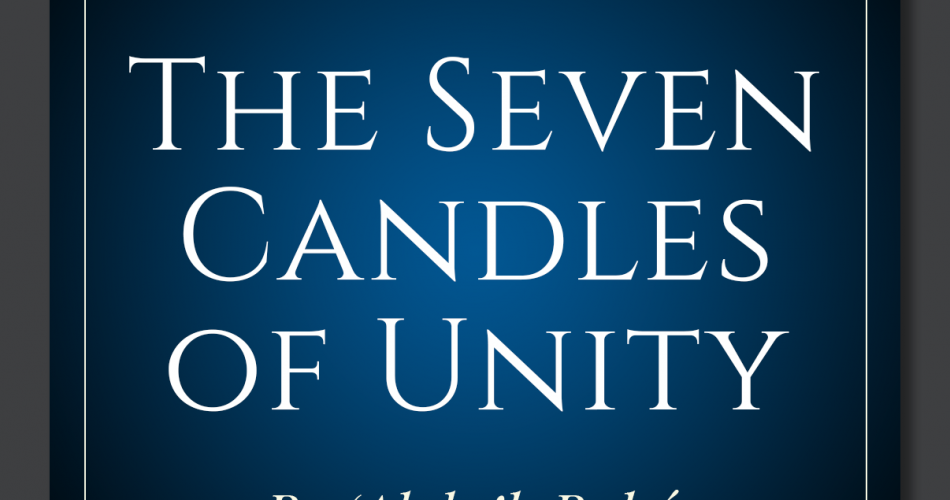The first candle is unity in the political realm, the early glimmerings of which can now be discerned. The second candle is unity of thought in world undertakings, the consummation of which will erelong be witnessed. The third candle is unity in freedom which will surely come to pass. The fourth candle is unity in religion which is the cornerstone of the foundation itself, and which, by the power of God, will be revealed in all its splendor. The fifth candle is the unity of nations—a unity which in this century will be securely established, causing all the peoples of the world to regard themselves as citizens of one common fatherland. The sixth candle is unity of races, making of all that dwell on earth peoples and kindreds of one race. The seventh candle is unity of language, i.e., the choice of a universal tongue in which all peoples will be instructed and converse. Each and every one of these will inevitably come to pass, inasmuch as the power of the Kingdom of God will aid and assist in their realization.
‘Abdu’l-Bahá
شمعِ اوّل وحدتِ سياسيست و جزئی اثری از آن ظاهر گرديده و شمعِ دوّم وحدتِ آراء در امورِ عظيمه است آن نيز عنقريب اثرش ظاهر گردد و شمعِ سوّم وحدتِ آزاديست آن نيز قطعيّاً حاصل گردد و شمعِ چهارم وحدت دينی است اين اصلِ اساس است و شاهدِ اين وحدت در انجمنِ عالم به قوّتِ الهيّه جلوه نمايد و شمعِ پنجم وحدتِ وطنيّت در اين قرن اين اتّحاد و يگانگی نيز به نهايتِ قوّت ظاهر شود جميعِ مللِ عالم عاقبت خود را اهلِ وطنِ واحد شمارند و شمعِ ششم وحدتِ جنس است جميعِ مَن علی الارض مانندِ جنسِ واحد شوند شمعِ هفتم وحدتِ لسان است يعنی لسانی ايجاد گردد که عمومِ خلق تحصيلِ آن نمايند و با يکديگر مکالمه کنند اين امور که ذکر شد جميعاً قطعیالحصولست زيرا قوّتی ملکوتيّه مؤيِّدِ آن
حضرت عبدالبهاء
In 1906, Mrs. Jane Elizabeth Whyte, wife of onetime Moderator of the General Assembly of the Free Church of Scotland, Alexander Whyte, travelled to ‘Akká in order to visit ‘Abdu’l-Bahá. The invitation came from Mrs. Whyte’s friend, Mary Thornburgh-Cropper, who in 1898 became the first person in England to convert to the Baháʼí Faith. Mrs. Whyte was encouraged to take up the offer by Professor E. G. Browne, who was the only Westerner to leave an account of his meeting with Baháʼu’lláh, in ‘Akká, in 1890.
Upon her return to Scotland, Mrs. Whyte wrote to ‘Abdu’l-Bahá, and His Tablet in reply contained the famous “Seven Candles of Unity” passage.
For more information about this Tablet and the history of the Bahá’í Faith in Scotland, please refer to The Seven Candles of Unity by Anjam T. Khursheed, London: Baháʼí Publishing Trust (1991).
Original Sources
Further References
